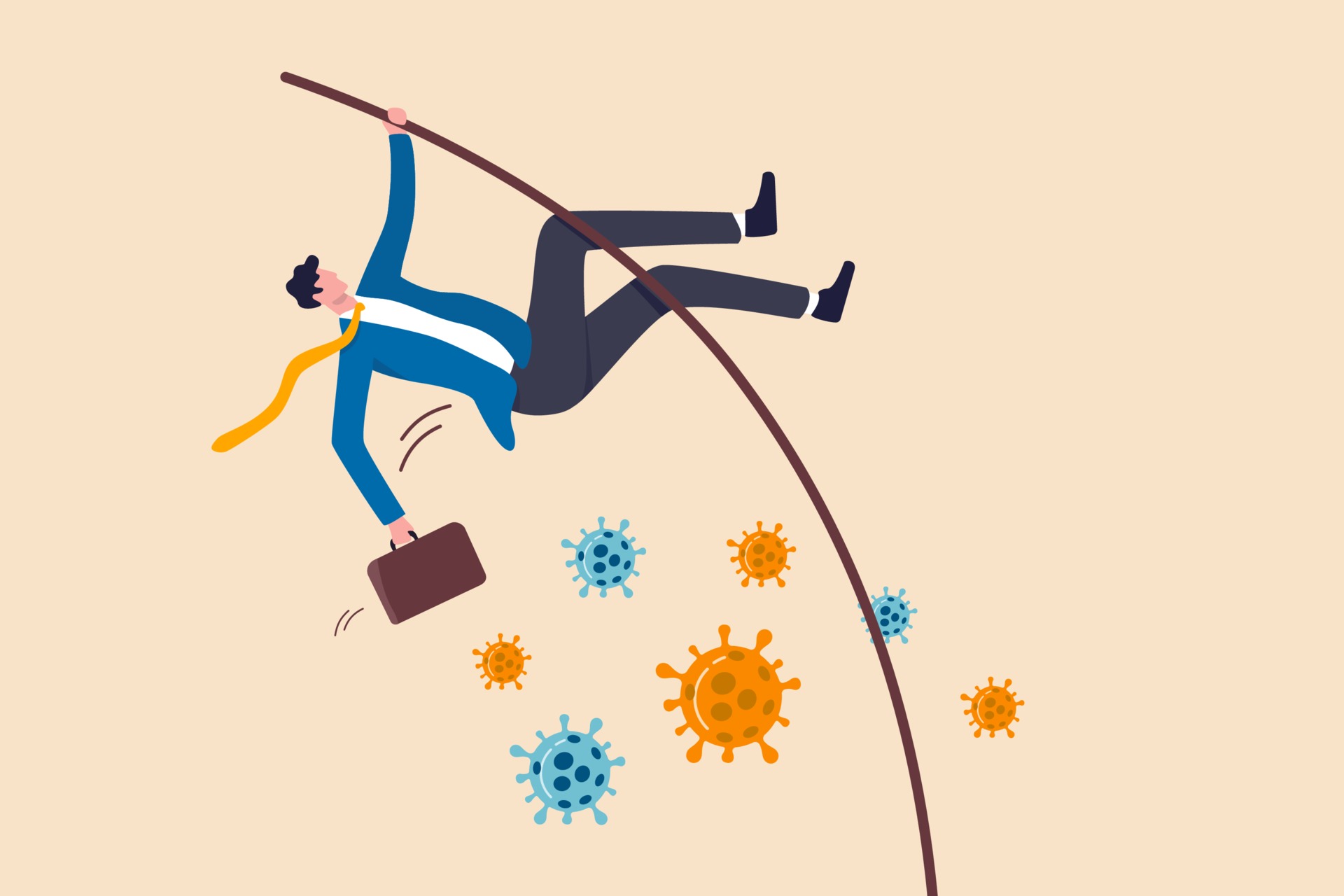
by Laura Stack, MBA, CSP, CPAE
“Smooth seas do not make skillful sailors.”—African Proverb
While we may be premature in assuming that the worst of the COVID-19 pandemic has passed with the Delta variant alive and well, it’s better than it was a year ago. However, things will never be the same in its wake, even for those of us untouched by the disease itself. Our new attitudes about social distancing, personal protection, and hygiene will remain for a long time, as will practices adopted in all aspects of our lives.
Among other things, we’re still weathering the worst recession since the Great Depression, when so many of us were laid off, furloughed, or otherwise out of work due to lockdowns. Now that we’re piecing together the shuttered and shattered portions of our economy, we’re also putting into action various things we’ve learned in order to get anything done at all.
More than anything else, remote technology saved us from financial and business ruin. During the last major pandemic, the Spanish Flu of 1918-1919, our ancestors managed without it, because they still depended on simpler lifestyles. But in the intervening century, we’ve become so dependent on high-tech and machines that we could barely function as coherent centralized organizations during the pandemic. Without telephony and its offshoots, we couldn’t have gotten much done. The general consensus is that these and other new business methods of promise to revolutionize post-COVID productivity as things normalize.
Let’s take a look at a few things the business world has adopted that promise good things to come:
- Less business travel. This was forced upon us as airlines and other carriers either shut down or drastically cut back. Suddenly, it became near-impossible to have face-to-face meetings with clients or co-workers across the country or world. Face-time—if needed—was usually possible using Skype, Zoom, and other software apps. If not, good old phone-based telecons sufficed. We proved to ourselves we don’t need as much business travel. If we can hold to this lesson, we can’t help but become more productive and profitable.
- Telework/remote work became more acceptable all the way around. Management and rank-and-file alike became more comfortable with it, because again, it was forced on us by circumstance. No more Neanderthal thinking that if I can’t see you, you can’t be working. Those who had never embraced remote work, as so many others already had, learned how useful it was, and stopped worrying so much about workers skiving off just because they weren’t under the watchful eyes of their managers. If everyone remains as comfortable as the technology advances, productivity will continue to rise based on what we’ve learned.
- Digitization, automation, and AI has become better and entrenched in the workplace. Like most pundits, I don’t see this changing. These aren’t the kinds of innovations that will replace people; they’ll make those people more productive, since they don’t need to worry so much about the day-to-day “housekeeping” of their workplace, whether that means compiling daily reports or filing paperwork.
- Many organizations have restructured their workforce more efficiently. They were obliged by social distancing and remote working to create efficient long-distance ways of doing things, especially during downtime after layoffs. Sometimes this meant laying off or letting go their least productive workers so they might become more efficient and agile. As long as these improvements aren’t dropped as COVID goes away, they’ll pay more productivity dividends down the line.
- Hardships strengthened surviving businesses. To survive, most had no choice but to innovate. Many of those innovations will continue to pay off in coming years. At the very least, the situation caused them to create new contingency plans to cover everything, preparing them in more ways for the future.
Toward the Future
One thing COVID-19 has required of us is the adoption and serious use of technology that futurists and science fiction writers expected us to adopt long since, but that businesses have heretofore avoided. Why this occurred isn’t entirely clear. Part of it was cultural inertia; when things work well enough, why change? I suspect many people also avoided remote technology due to fear of a presumed dehumanizing influence. Fortunately, it didn’t turn out that way; once we overcame a few technical obstacles, it allowed us to work effectively and brought us closer together. A glance at prime time TV commercials reveals that new telework and remote digital products are still being rolled out and pushed heavily, though most of us can gather in public once again—and e-commerce is booming. Bottom line, the business world’s response to COVID has helped personal productivity. We’ll see how it sticks.
© 2021 Laura Stack. Laura Stack, MBA, CSP, CPAE is an award-winning keynote speaker, bestselling author, and noted authority on employee and team productivity. She is the president of The Productivity Pro, Inc., a company dedicated to helping leaders increase workplace performance in high-stress environments. Stack has authored eight books, including FASTER TOGETHER: Accelerating Your Team’s Productivity (Berrett-Koehler 2018). She is a past president of the National Speakers Association, and a member of its exclusive Speaker Hall of Fame (with fewer than 175 members worldwide). Stack’s clients include Cisco Systems, Wal-Mart, and Bank of America, and she has been featured on the CBS Early Show and CNN, and in the New York Times. To have Laura Stack speak at an upcoming meeting or event, call 303-471-7401 or contact us online.


